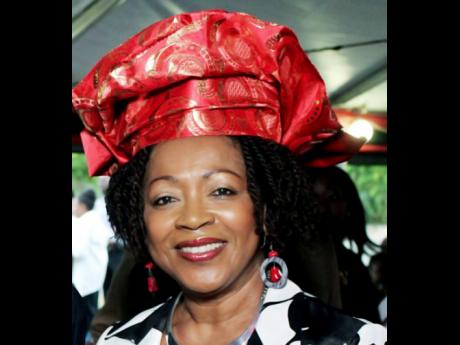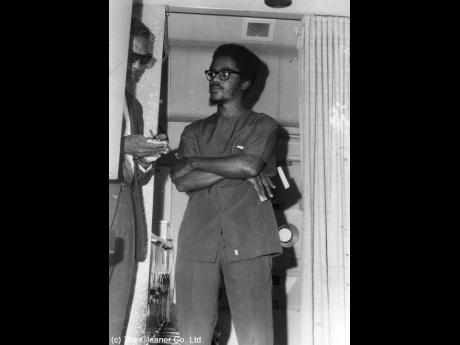Verene Shepherd | Rodney’s impact on academia and activism
There will be several activities at the University of the West Indies (UWI) this week to review and analyse the circumstances under which Walter Rodney, a prominent Guyanese historian, political activist and academic, was declared persona non grata and deported from Jamaica and the University of the West Indies, leading to student protests some 50 years ago.
Colleagues and the general public will also use the occasion to celebrate his life and outstanding achievements. I use this opportunity to pay my own tribute to this scholar-activist.
I never met him, but he is one of those historians who had a profound impact on my life. I was influenced by his published works on African and Caribbean history, in particular How Europe Underdeveloped Africa, which stands as a lesson in the way colonialism functioned to create underdevelopment.
I have always been impressed by how this brilliant historian refused to imprison himself within the walls of academia, as those who were part of his off-campus 'Groundings' will attest. He embraced the philosophy that history prepares us for activism; that history is a way of ordering knowledge that if, given a chance, can be used by all as an instrument of social change.
Therefore, like other historians, most notably Kamau Brathwaite, Lucille Mathurin Mair and Hilary Beckles (who is not only the vice-chancellor of the UWI, but the most prolific historian in the region), he shunned the path of the classic intellectual, associated traditionally with the ivory tower and snobbishness.
Political mission
Rodney had a deep abhorrence for, as he put it, "lackeys and stooges who hide in the shadow". He supported the visual recovery of our past through the identification and memorialisation of heroes and heroines. As Robert Hill said of his work, "The consciousness of the overlapping domains of popular struggle in Africa, America and the Caribbean formed the basis of his essential political mission that guided his career as a revolutionary and a scholar."
Those of us who are trying to follow in his footsteps have taken up the challenge and aligned ourselves with that band of post-colonial historians of Africa and the Caribbean who embarked on the project of rewriting and righting the history of a region affected by the destabilising effects of slavery; and write from the standpoint of those whose voices had been muted in the historical record.
As he stressed so often, the Caribbean was the site of the formation of European ideas of modernity and their construction of notions of hegemony, and all of us who live in Caribbean space have been deeply offended by the actualisation of such notions of hegemony and feel the need to preach against it constantly.
We operate in a difficult landscape, challenged constantly to demonstrate the relevance of history to Caribbean human development needs, while maintaining the quality of our discipline. Such a challenge has come from students, concerned about the relevance and marketability of a major in history, as well as from stakeholders in the wider society concerned about the use of their tax dollars and the relevance of the University of the West Indies to Caribbean social development in the light of competing socio-economic needs.
While some in the society regard history as an irrelevant subject, there is an opposite view that history has an active cultural and political role because of its relationship to national and regional identity.
And so we soldier on, and sometimes the rewards are un-expected. I was pleased that the UWI Library chose to recognise a Student Reader (Caribbean Slavery in the Atlantic World, co-edited with Professor Hilary Beckles, who had great foresight in suggesting its compilation and publica-tion) as one of the publications of the faculty over the 70 years of the UWI that have had far-reaching impact.
I hope that one day there will be justice for Walter Rodney in Jamaica and in Guyana (where he was killed in 1980).
- Verene A. Shepherd is a historian and chairperson of the National Commission on Reparations.
Email feedback to columns@gleanerjm.com and research.reparation@uwimona.edu.jm.


